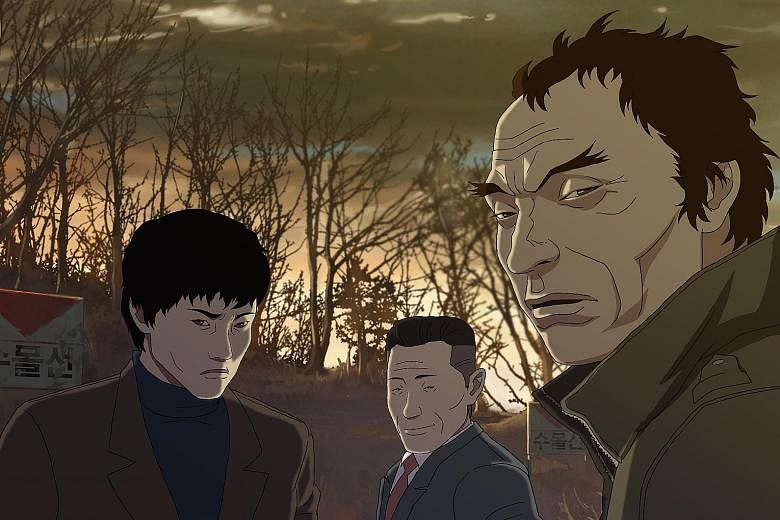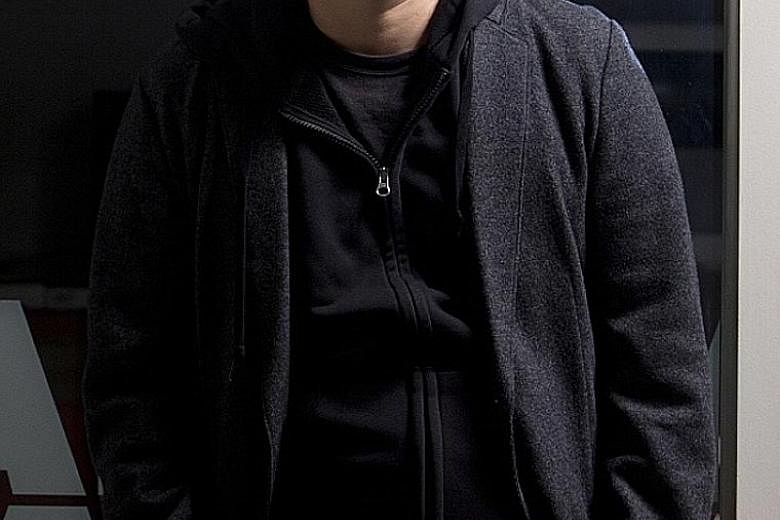The 2016 horror hit Train To Busan is a zombie flick with a sweet centre. In it, there are examples of average persons doing extraordinary things to help others.
That uplifting message helped make it the top-grossing South Korean movie of the year in many countries, including Singapore, where it earned more than $4.4 million at the box office.
An American remake is expected in the next two years.
The remarkable fact about Train To Busan's near-universal success is that its director comes from the niche world of indie animation, with films that emphasise the cynical rather than the heroic.
Yeon Sang-ho, 39, will be coming to Singapore to talk about one of those works, 2013 animation drama The Fake.
It will be screened here as part of the inaugural Scream Asia Film Festival, which runs from tomorrow till Oct 28.
As with his other animation features, including the Train To Busan prequel Seoul Station (2016) and The King Of Pigs (2011), the world of The Fake is sour with characters who exploit the weak.
-
BOOK IT / SCREAM ASIA FILM FESTIVAL 2018
-
WHERE: Cathay Cineplexes, various locations
WHEN: Tomorrow to Oct 28, various times
ADMISSION: $13
In an e-mail interview with The Straits Times, Yeon says humans "have a fear of uncertainty", leaving them vulnerable to tales spun by those claiming to speak for God.
"I guess we instinctively try to rely on some kind of belief. The Fake is a tragedy about what happens when people, driven by misfortune and fear, rely on religious faith," he says.
The film tells of how a con artist, using evangelical Christianity as a cover, is looking to fleece villagers out of the money they received from the government as compensation for allowing their land to be flooded for a dam.
The only person who can see through the scam is a wife-beating drunkard and ex-convict, a social pariah hated by everyone.
No amount of proof he offers can convince his neighbours that the real evil is not him, but the smiling men in smart clothes seeking donations in return for a guaranteed place in heaven.
It is a bleak story that "is likely to happen in Korea", says Yeon, who will be in Singapore on Saturday to hold a film-making masterclass as part of the festival.
To get insight into the issue, he scanned news stories for cases of religious fraud and interviewed victims.
The incident depicted in the film is fictional, but he thinks he captured what it feels like to be caught on the hooks of the fraudster who has convinced victims to dismiss all proof of his wrongdoing as the work of the devil.
"I believe the despair and the state of victims' minds I encountered during my interviews are well reflected in the film," he says, adding that the weak and confused do not just fall prey to religious scams, but to manipulation from anywhere.
He is an example of someone who moved from the fringe of the film industry into the centre.
The success of South Korean pop culture around the world, from K-pop to K-drama to films such as Train To Busan, is linked to how artists in the country, no matter how non-commercial their style, can find support.
"As an indie animation director, I believe that a successful filmmaking industry is not one with huge sales, but one with great diversity," he says.
"Only from such diversity can new and universal movies emerge."



